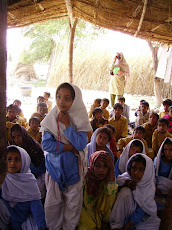The Thematic discussion was on protection against illicit trafficking in cultural property. However, the theme of Violence against Women was discussed as well as Women in Detention (Bangkok Rules). The resolutions are listed in the report below.
SUGGESTIONS FOR PRACTICAL ACTION BY SOROPTIMISTS:
Wherever Soroptimists are in the respective position they should make those responsible aware of their commitment to these UN conventions.
The thematic discussion this year was on Protection against illicit trafficking in cultural property.
However there was again the chance for governments to ratify the UN Convention against Transnational Organized Crime and the Protocols thereto, the Ratification of the UN Convention against Corruption, the Ratification of International Instruments to Prevent and Combat Terrorism, World Crime Trends and Emerging Issues and responses in the field of crime prevention and criminal justice.
Among the 15 topics on the agenda was also the Consideration of the conclusions and recommendations of the 12th UN Congress of Crime Prevention and Criminal Justice in Salvador/Brazil.
The main theme of the congress had been Comprehensive Strategies for Global Challenges: Crime Prevention and Criminal Justice Systems and their Development in a Changing World. Violence against Women is an ongoing theme.
(A/CONF.213/18, chap. I, resolution 1; E/CN.15/2010/11)
An excellent report on the “Activities of the NGOs and the Ancillary Meetings” at the Congress has been issued by ISPAC, a source of inside information on the Congress and for any further participation or partnership at a future UN Congress on Crime Prevention
Under item 7 of the Commission (Use and application of United Nations standards and norms in crime prevention and criminal justice) the resolution “Strengthening crime prevention and criminal justice responses to violence against women” had significant discussion again this year. The resolution has been worked on since 1997. Two years ago a similar resolution was not adopted but reduced to a decision to revisit this issue in two years. This year the debate was again lively and heated about gender equality and the various interpretations (e.g. gender justice) of that concept. One has to realize that a resolution, once adopted, is supposed to be implemented in all 192 countries that are UN members. It must be worded in a way that it fits each of the respective criminal systems. The frustration of ongoing debates of a few countries against the masses is also understandable.
The resolution was closed in the Committee of the Whole (a smaller group of debating Commission members) without full agreement and moved to the floor of the Plenary where it was adopted. China Cuba Iran Saudi Arabia
(Resolution E/CN.15/2010/L.2/Rev.1)
The resolution entitled “Measures for achieving progress on the issue of trafficking in persons, pursuant to the Salvador Declaration on Comprehensive Strategies for Global Challenges: Crime Prevention and Criminal Justice Systems and their Development in a Changing World“ calls on Member States to make changes to their laws and/or enforce demand reduction, punishing those who use the services of victims of trafficking. Mentioned is the frequent lack of visibility in our society of various forms of exploitation, such as sexual exploitation, illicit removal of organs, forced labour, slavery and practices similar to slavery. The current inability to disaggregate the slave trade into its component parts, such as demand, supply and related prices is of concern. While there was considerable negotiation and changes, the final version was adopted.
(Resolution E/CN.15/2010/L.12/Rev.1)
The “Bangkok
Some of the Bangkok Rules equally apply to men, for instance keeping children from visiting “parents” as a form of punishment of the parents – this should not be used because of the best interest of the child. This is included in the Bangkok
(Resolution E/CN.15/2010/L.3/Rev.1)
The Commission on Crime Prevention and Criminal Justice is composed of 40 members, they are elected or re-elected by ECOSOC. The three-year term of office expires on 31 December of the given year.
Roswitha Benesch
SI Representative to the UN Vienna







No comments:
Post a Comment